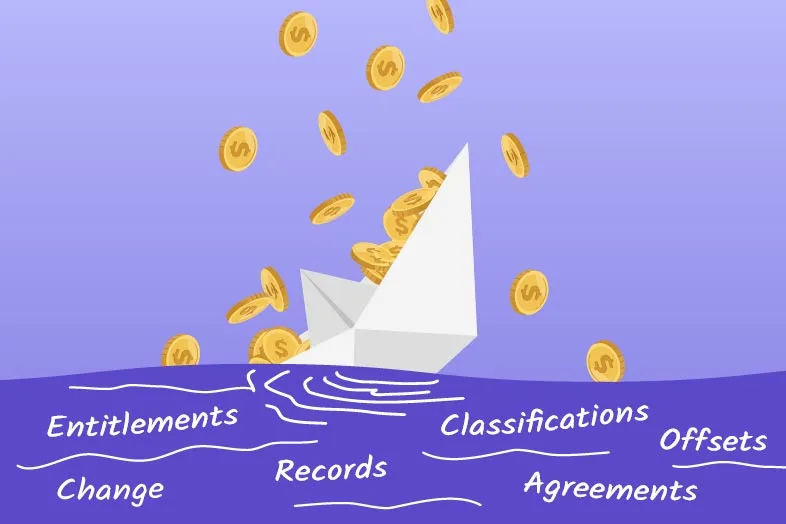With the growing surge of underpayment cases spotlighted in the Australian media, the term "wage theft" often emerges as a headline-grabbing buzzword. However, the introduction of the Closing Loopholes Act 2023 has amplified discussions surrounding wage theft, sometimes leading to misconceptions or misrepresentations in the media, particularly for those less familiar with the nuances of industrial relations terminology.
In the dynamic realm of industrial relations, coupled with ongoing media scrutiny of underpayment cases, clarity becomes paramount. In this blog post, we’ll delve into how "wage theft" is defined in the bill, distinguishing it from civil underpayment cases, and outlining the differing consequences associated with each.
Wage theft
Following the passage of the Closing Loopholes Bill, the Fair Work Ombudsman will have the option to pursue a criminal prosecution for the most serious forms of intentional underpayments.
What is wage theft?
Wage theft occurs when an employer intentionally fails to pay an employee the full amount due to them on or before the specified payment date, as required by law or an industrial agreement.
What is an example of wage theft?
A practical example would be if an employer were to intentionally underpay an employee by falsifying time records to show fewer hours worked than actually worked, when they were fully aware that this would result in the employee not receiving their full entitled wage.
What is the penalty for wage theft in Australia?
New legislation introduced by the federal government aims to make it an offence to withhold wages and entitlements deliberately. Fines could reach the higher of $7,825,000, or three times the underpayment amount for corporations, and complicit individuals could face potential criminal sanctions.
Distinguishing a criminal offence (wage theft) from civil cases
While most employers do not intentionally steal wages from their employees, there may be cases where they make honest mistakes, fail to have the proactive frameworks in place to mitigate underpayment risk, or take too long to fix an identified issue.
These employers would not be held accountable for criminal wage theft but, depending on the situation, may face civil penalties for contraventions of the Fair Work Act related to the underpayment.
Underpayment civil contraventions
Under the Closing Loopholes Bill, employers who commit contraventions involving underpayments will face increased civil penalties.
Penalties for contraventions of the Fair Work Act
For contraventions, corporations will face a maximum penalty which will be the higher of $469,500 or three times the underpayment amount.
Penalties for serious contraventions of the Fair Work Act
For serious contraventions, corporations will face a maximum penalty which will be the higher of $4,696,000 or three times the underpayment amount.
Another noteworthy change is that serious contraventions will encompass reckless behaviour.
What counts as reckless behaviour?
Employers are at risk of being deemed reckless when they are aware of a substantial and unjustifiable risk that the required payment will not be made in full and consciously disregard that risk.
This is a lower threshold of fault compared to the intentional conduct required for wage theft.
An example of reckless behaviour would be if an employer, aware of potential discrepancies in the payroll system, fails to investigate or rectify the issue, leading to a substantial risk that employees may be underpaid, but without a direct intention to underpay.
The importance of identifying and rectifying underpayments
Like in many underpayment stories we read in the press, most employers do not show malicious intent to underpay, but haven’t adequately monitored and mitigated their payroll underpayment risk areas.
Across 90+ employers and circa $70 billion worth of payroll we’ve reviewed at Yellow Canary, the average underpayment ranges from 1-3% of total payroll. Essentially, an organisation can be 99% compliant, but even without direct intent to underpay, that 1% can be enough to make headlines, erode confidence in the workforce and land the business in strife with the regulator.
Having the right governance framework in place to monitor those risk areas and create top-up payments to employees proactively when variances occur can be the protection against heavy penalties and damaging headlines.
Yellow Canary’s Always On Compliance
Investing upfront in strong governance frameworks will outweigh the costs associated with civil underpayment penalties, subsequent payroll remediation efforts and brand damage. Regular payroll audits and proactive back-payments can prevent unintentional issues from compounding, saving organisations potentially millions in penalties and remediation costs.
More and more organisations are recognising the importance of proactive compliance, turning to Yellow Canary for assistance. Our Always On Compliance platform eases the burden on busy HR and payroll teams by conducting monthly automated wage reviews, pinpointing payroll discrepancies and their underlying drivers.
If recent news has prompted concerns for your own business related to underpayment risk, we’d be happy to help. Don't hesitate to reach out.





